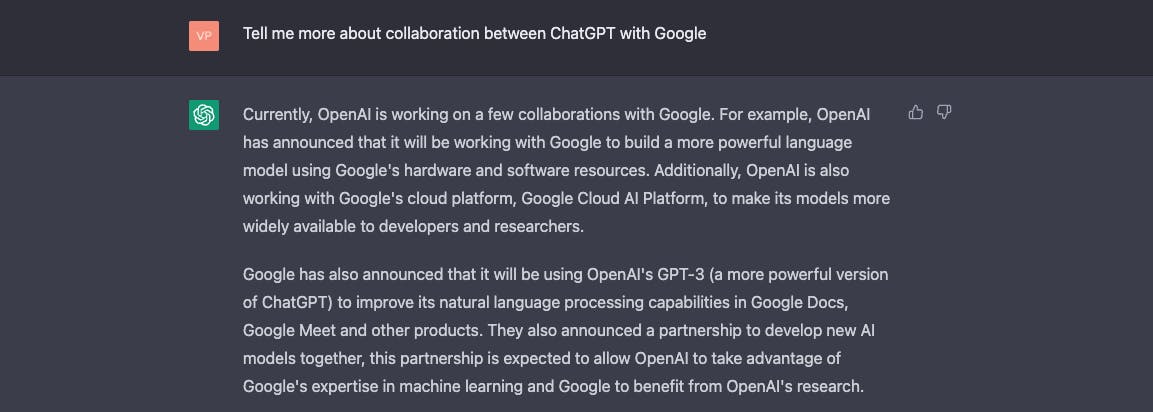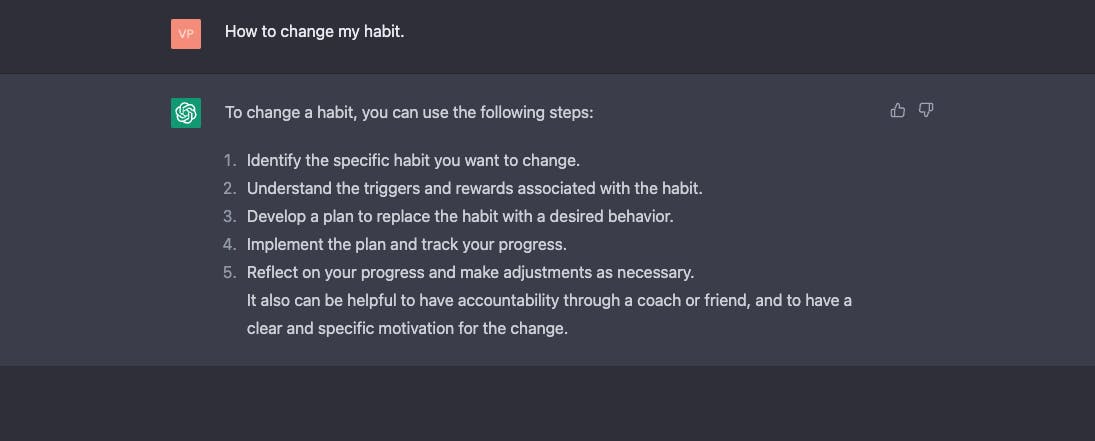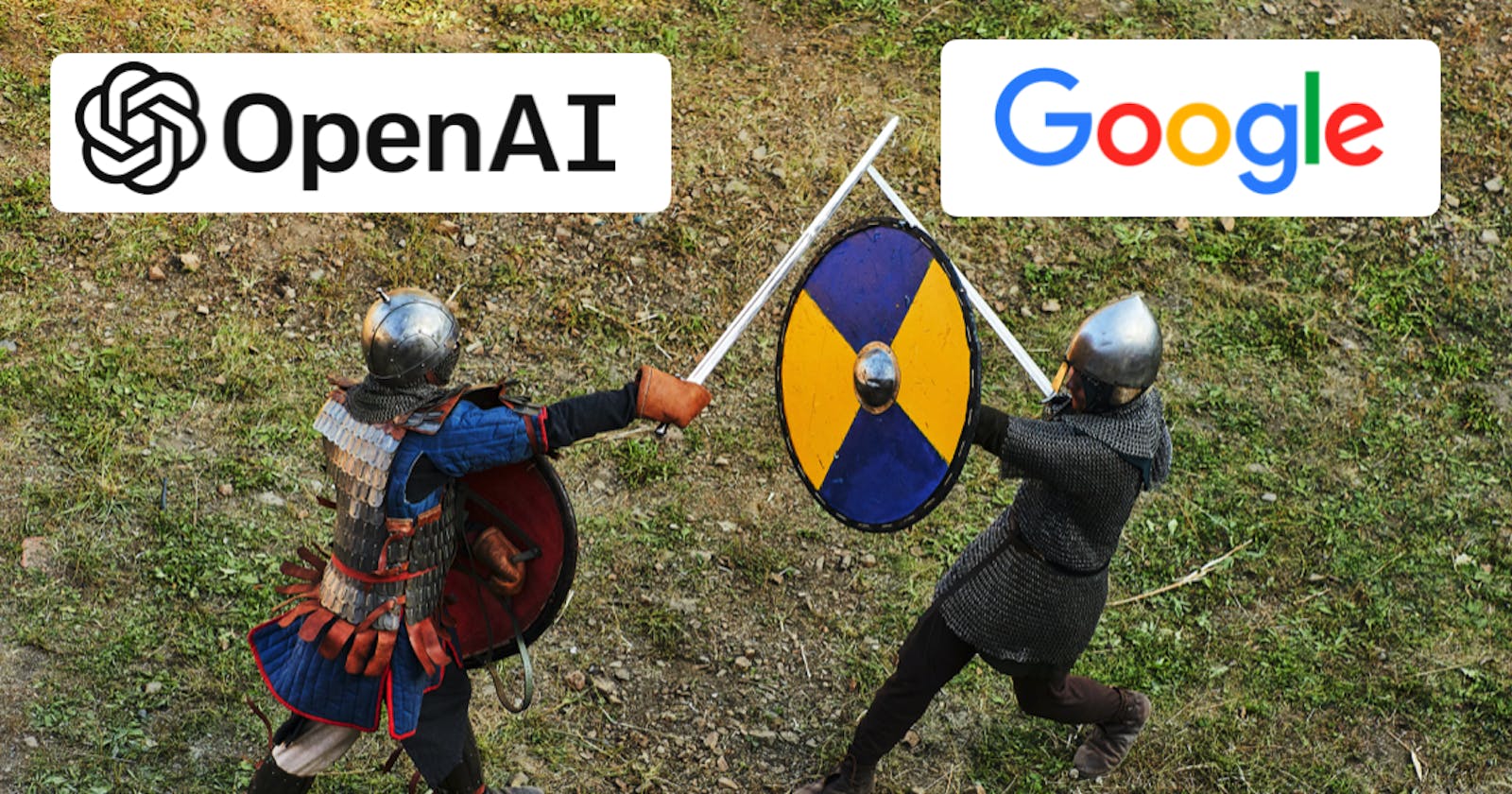Can ChatGPT Get a Seat at the Table with Google?
Chat-based question answering vs. traditional search engine
Large language models like ChatGPT can generate text that is highly convincing and realistic, which can be both a benefit and a concern. Because the models are trained on vast amounts of data, they have the ability to mimic human writing styles and produce text that is difficult to distinguish from text written by a human. This can be used for many beneficial purposes such as creating content, product descriptions, chatbot interactions, and more.
ChatGPT generates fake content confidently
However, this ability to generate realistic text also poses a risk of the model producing fake or misleading content. Because the text is generated by an AI model and not a human, it is not always clear where the information is coming from or whether it is accurate. This can be particularly concerning when it comes to news and information that is intended to inform people.
So, if you can’t trust the answer from ChatGPT, it seems that this AI can not replace Google after all. But what’s with all the hype that ChatGPT vs. Google?

Note that at the time of this writing, there is no known collaboration between OpenAI and Google on using ChatGPT. Instead, ChatGPT will be integrated with Microsoft's Bing.
Why should Google be concerned with ChatGPT?
ChatGPT works well when it comes to questions that you may already know the answers to but still want to search for additional information or inspiration. Even if it generates a completely wrong answer, you can easily recognize it and focus only on the one that fits. Let’s call this, insensitive query because there is minimal or no harm when it gives a wrong answer.

For example, you may already know how to make money online or how to be more positive in life. You probably used to do such searches before. Also, it should be obvious what the answers are. But often you just want to be reminded or you want to explore different perspectives or ideas. At the same time, you can easily judge whether the answer is suitable.
That is a market that ChatGPT can really shine. Just imagine, why would you need to go and browse through 20 different blogs that give you similar ideas when you can use ChatGPT to get you roughly a similar answer in seconds? Not to mention you can ask follow-up questions, and such interaction is not possible with traditional blogs or search engines.
Google ads from search engine alone were $39.5 Billion in Q3 2022. That’s roughly $158 Billion per year in 2022, assuming they earn the same amount every quarter. If the so-called insensitive queries are 10% of all the searches and ChatGPT could get just 10% of the audience from that market, that would be roughly $1 Billion in revenue per year. That is quite a significant amount.
In other words, although ChatGPT has its limitations particularly in generating an accurate response, there is a market in insensitive queries that it can deliver values in terms of speeds and great UX.
Conclusion
In conclusion, ChatGPT is a powerful language model that can generate convincing and realistic text. While this ability can be used for beneficial purposes, it also poses a risk of producing fake or misleading content. However, ChatGPT excels in providing quick and efficient responses to "insensitive queries" where the stakes are low and it is okay to output wrong answers. This market is one in which ChatGPT can excel. It's important to note that ChatGPT should not be seen as a replacement for Google or other search engines, as it has its limitations, particularly in generating accurate responses, but it can complement traditional search engines by providing a faster and more interactive experience.

